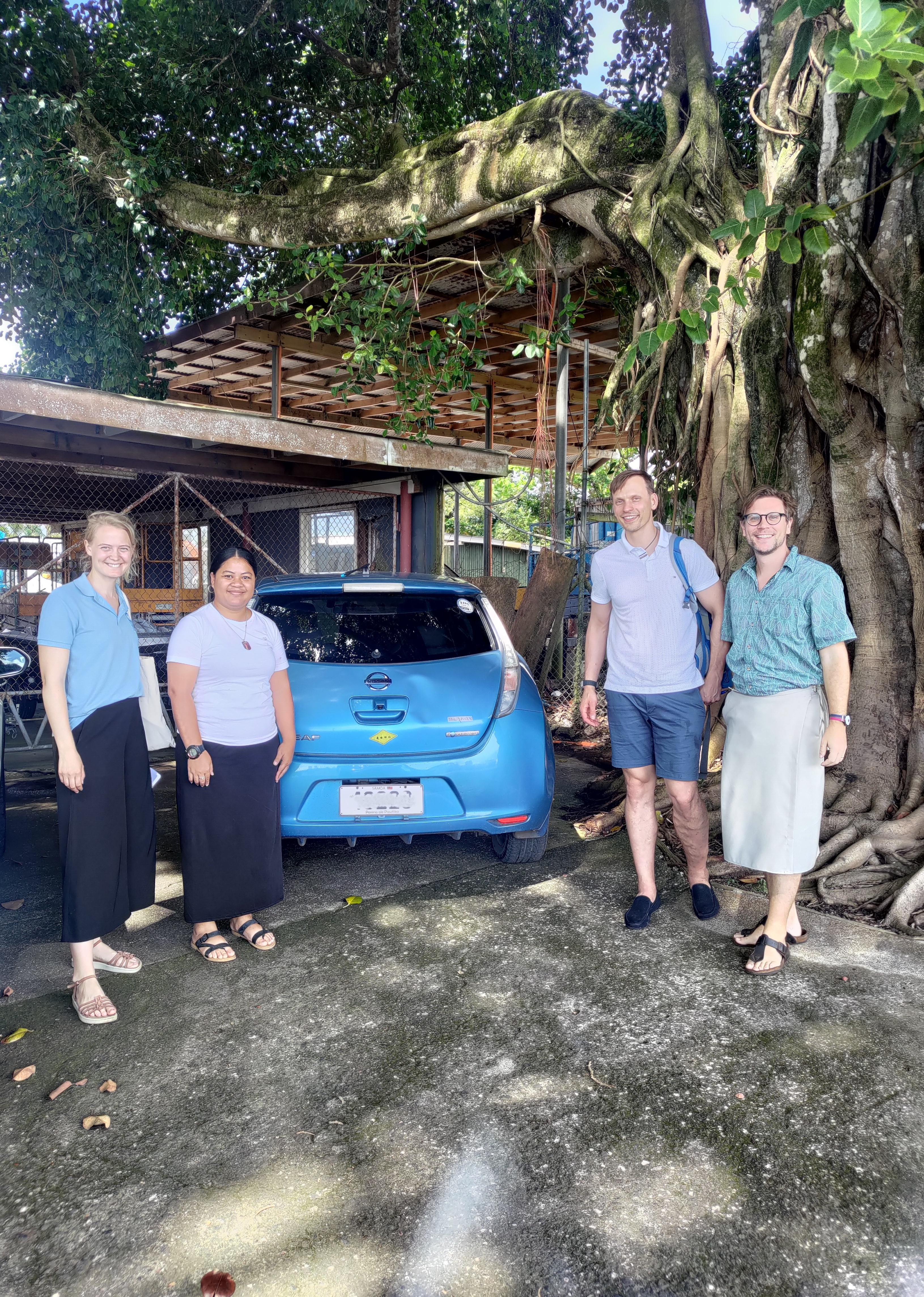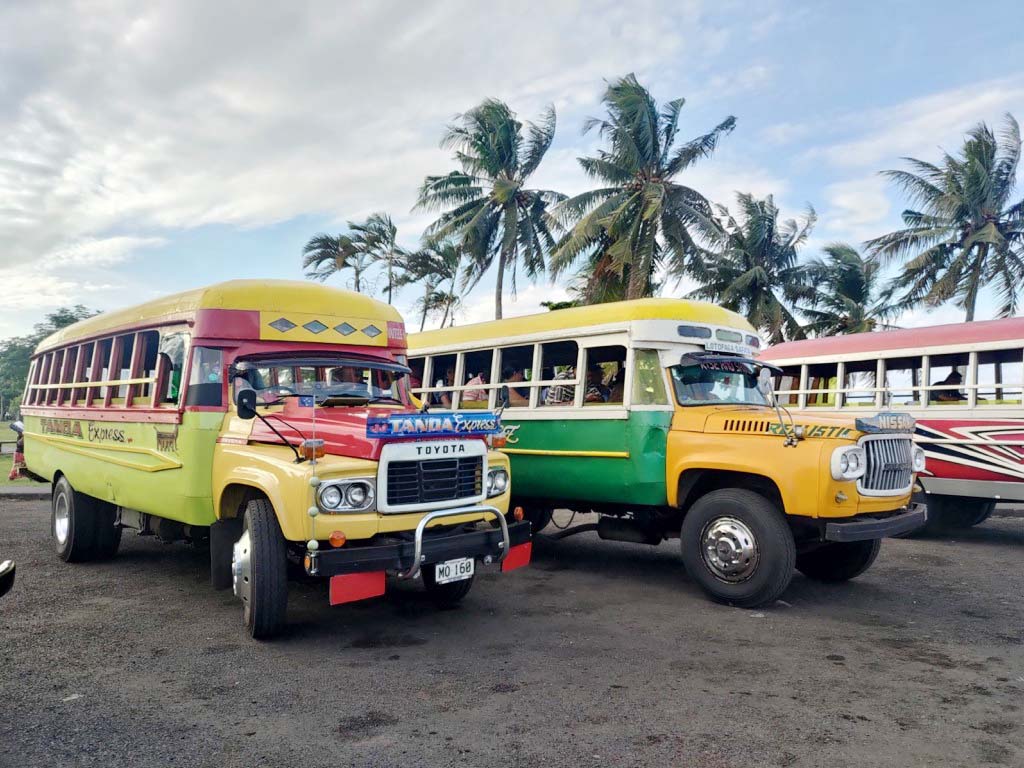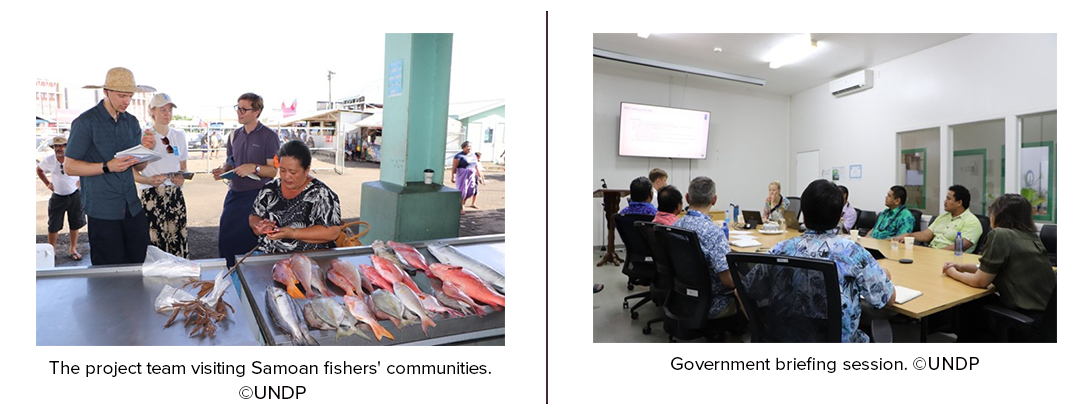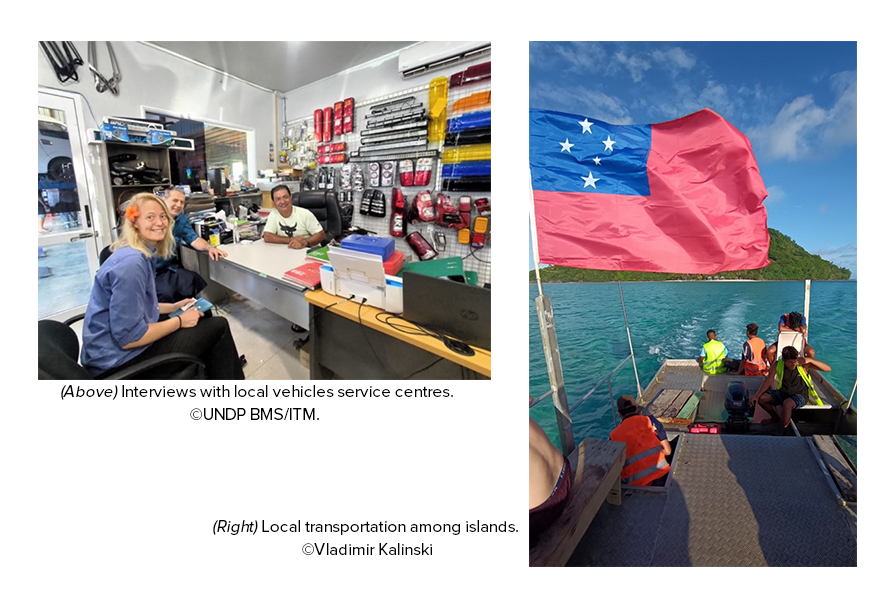Driving Samoa towards a green energy transport system
October 30, 2023

Interviews with local vehicles service centres. ©UNDP BMS_ITM.
UNDP Samoa plans to bring in a fleet of electric vehicles (EVs) and set up over 80 EV charging stations to transform transportation across the small island state of Samoa. The electric vehicles include sedans, pickup and flatbed trucks, vans, and a bus.
Working with the Government of Samoa and supported by engineers from UNDP’s Information and Technology Management Unit (ITM), the two-year project aims to help the islands make a leap forward in eliminating carbon emissions from the land and marine transportation sector. The objective is to meet Samoa’s carbon reduction targets – Nationally Determined Contributions (NDCs) – and help contribute to the reduction of global greenhouse gas emissions.
The Climate Action Pathways for Island Transport (CAP-IT) project is part of a Japan-funded more than US $37 million Green Transformation initiative, which is also supporting Papua New Guinea, Timor-Leste, and Vanuatu to help accelerate their transition to a green and low-carbon future. US$15.3 million of these funds have been allocated to Samoa.
“I am delighted to witness the progress being made through the Climate Action Pathways for Island Transport project. This initiative embodies our commitment to a sustainable and low-carbon future not only for Samoa but for the entire Pacific region,” said H.E. Keisuke Senta, Ambassador of Japan to Samoa. “The introduction of electric vehicles and charging stations across Samoa is a significant step towards eliminating carbon emissions from both land and marine transportation. By supporting this project, Japan is proud to contribute to Samoa's carbon reduction targets and the global fight against greenhouse gas emissions.”

Samoa’s public buses ©UNDP
The CAP-IT project aims to set up solar charging stations for public use, next year. The project team is also meeting with stakeholders and has initiated a feasibility study to look at how best to convert Samoa’s sea transportation systems. The introduction of low-carbon outboard motors for Samoa's fishing fleet will help promote sustainable maritime practices.
According to UNDP Deputy Resident Representative, Verena Linneweber, the adoption of EVs will have a direct impact on the local community.
“This project puts Samoa and Samoans first, by aiming to end the import of petrol, a major pollutant, and cause of climate change,” she said. “Ultimately, using electric vehicles will be cheaper and more convenient for Samoans.”
The UNDP team visited more than 25 locations, including government buildings and waste management facilities to learn about the logistics of handling used electronics and EV battery disposal. It also visited the fish market in the capital Apia, to learn more about Samoa’s fishing industry and its fleet. It identified suitable locations for EV charging infrastructure and conducted over a dozen interviews with car dealerships and service centers to determine the potential of EVs in the country.
“We conducted discussions with Government officials to better understand what vehicles are commonly used in the country, and met with members of the fishing community, local maritime transportation, and residents, to explore ways of reducing emissions in the maritime sector,” said UNDP ITM Green Energy Analyst, Malin Anderberg.



 Locations
Locations